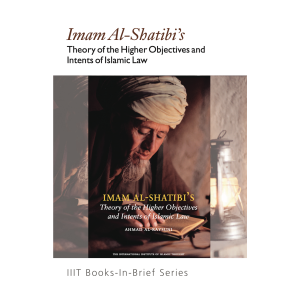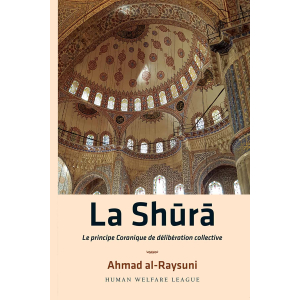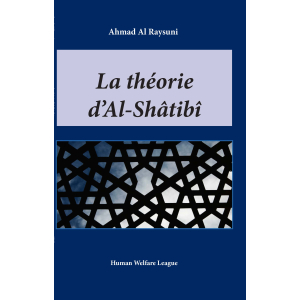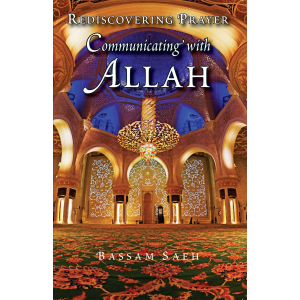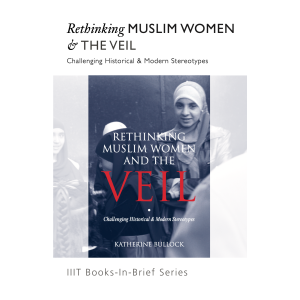-
Imam Al Shatibi’s Theory of the Higher Objectives and Intents of Islamic Law
$0Overview
With the end of the early Islamic period, Muslim scholars came to sense that a rift had begun to emerge between the teachings and principles of Islam and Muslims’ daily reality and practices. The most important means by which scholars sought to restore the intimate contact between Muslims and the Qur’an was to study the objectives of Islam, the causes behind Islamic legal rulings and the intentions and goals underlying the Shari’ah, or Islamic Law. They made it clear that every legal ruling in Islam has a function which it performs, an aim which it realizes, a cause, be it explicit or implicit, and an intention which it seeks to fulfill, and all of this in order to realize benefit to human beings or to ward off harm or corruption. They showed how these intentions, and higher objectives might at times be contained explicitly in the texts of the Qur’an and the Sunnah, while at other times, scholars might bring them to light by means of independent reasoning based on their understanding of the Qur’an and the Sunnah within a framework of time and space. This book represents a pioneering contribution presenting a comprehensive theory of the objectives of Islamic law in its various aspects, as well as a painstaking study of objectives-based thought as pioneered by the father of objectives-based jurisprudence, Imam Abu Ishaq al-Shatibi; in addition, the author presents us with an important study of al-Shatibi himself which offers a wealth of new, beneficial information about the life, thought and method of this venerable man.
-
La Shūrā Le principe Coranique de délibération collective
$3Overview
La Shura, dans ce livre, Al Raysumi propose les variantes d’une possible application de la Shura après analyses profondes et un rappel de son histoire évolutive. Il démontre une nouvelle orientation qui fait entrevoir des aspects de la Shura que d’autres n’ont fait que banaliser jusqu’ici. L’auteur recommande la Shura aux musulmans engagés comme outil de combat dans la constructionet reforme sociétale.
Prof Ahmad Al-Raysuni est titulaire d’un doctorat en études islamiques de l’université «Muhammad al-Khamis» (Rabat, Maroc). Il a travaillé au ministère de la Justice. Il est le rédacteur en chef du journal al-Tajdid et membre de l’Association des Oulémas musulmans au Maroc. Le Professeur al-Raysuni a écrit en arabe un certain nombre de livres et d’articles sur Al-Maqasid, dont certains ont été traduits dans d’autres langues. Il enseigne actuellement Usul al-fiqh et Maqasid Al-Shari’ah au Collège des Arts et des Sciences Humaines (Université de Muhammad al-Khamis, Maroc). -
La théorie d’Al-Shâtibî
$3Overview
Theorie d’Al Shatibi L’imam Abu Ishaq al-Shatibi (mort 790A.H/1388), le sujet de cet ouvrage, illustra et inspira des études sur les principes et les finalités da la loi islamique. Ses méthodes offrent une compréhension solide, fondée du Coran et de la Sunnah. Cet ouvrage met en évidence l’importance d’une méthode qui s’appuie sur des universaux législatifs, méthode qui permet de comprendre et d’utiliser des textes donné. Tout acte d’ijtihad et de la pensée islamique repose sur les principes et objectifs universels de la loi islamique.
AHMAD AL-RAYSUNI est titulaire d’un Doctorat en études Islamiques de l’Université Muhammad al-Khamis, Rabat, Maroc. Il a travaillé au Ministère de la Justice, est l’éditeur du journal al-Tajdid, et est membre de la Jamiyat al-Ulama (l’Association des Savants Musulmans) au Maroc. Le Professeur Raysuni a écrit plusieurs ouvrages et articles sur al-Maqasid en arabe, dont certains ont été traduits en diverses langues. Il enseigne actuellement les Usul al-Fiqh et les Maqasid al-Shari‘a au Collège des Arts et Sciences Humaines, Université Muhammad al-Khamis. -
Rediscovering Prayer Communicating with Allah
$3Overview
Muslims are required to pray five times a day, but for too many of us these are little more than physical movements devoid of any spirit or divine connection? In contrast with such routine outward performance, the Prophet characterised prayer as “the spiritual ascent (mi[raj) of the believer.” In a modern world of constant distraction, how are we to achieve the communion with the Divine that prayer is supposed to be? How can we reach the state of the Prophet who would ask his Companion Bilal to give the call to prayer with the expression: “Give us repose through it, O Bilal.” The present short but valuable work provides us with the answer.
Dr Bassam Saeh, a scholar of the Arabic language, casts a refreshing new perspective on prayer in the modern context. With practical examples, and in contemporary idiom, he charts a path for the seeker of God’s pleasure to attain a deeper sense of consciousness and devotion in prayer. The short chapters of this work are designed to be read and reread as constant reminders for us to renew our commitment to the Divine in our prayer.
Dr Bassam Saeh holds a BA in Arabic literature from Damascus University, and an MA & PhD in modern Arabic poetry from Cairo University. He has taught at a number of universities across the Middle East and Europe. In 1990 he founded the Oxford Academy for Advanced Studies and served as its principal until 2005. He has also been a presenter of several radio and TV programs, and has authored a number of books. He currently resides in Oxford, England. -
Rethinking Muslim Woman & The Veil: Challenging Historical & Modern Stereotypes
$0Overview
A powerful critique of the popular western notion that the veil is a symbol of Muslim women’s oppression. In postulating a positive theory of the hijâb, the author challenges with great sophistication both the commonly held view of Muslim women being subjugated by men, as well as the liberal feminists’ who criticize the choice of women to cover themselves as ultimately unliberating.
The author argues that in a culture of consumerism, the hijâb can be experienced as a liberation from the tyranny of the beauty myth and the thin “ideal” woman.
In dispelling some widely held myths about Muslim women and the hijâb, the author introduces respectability to the voice of believing Muslim women, claiming that liberation and the equality of women are fundamental to Islam itself.


